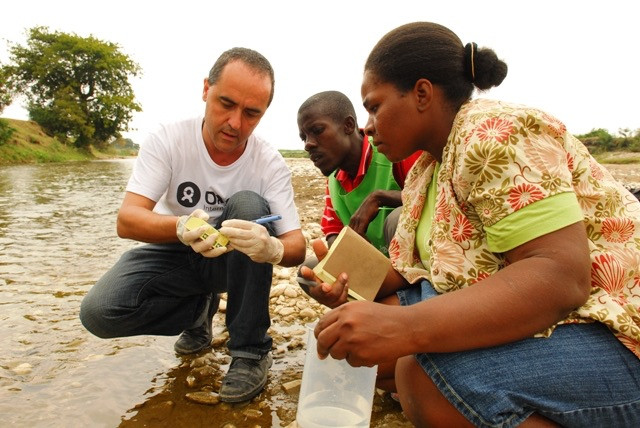An internal document circulated last week by Oxfam’s chief executive, Mark Goldring, says the charity will “have to save substantial amounts of money to put [us] on a more stable and sustainable footing”.
The seven-page document, which is marked confidential, stats: “It is clear ... that the size of our programmes will be substantially reduced for this year and next ... this means making tough choices.”
It says job losses are “inevitable”. Selling off high-street shops and reducing the number of countries in which Oxfam operates are both proposals under consideration.
The charity has been struggling to win back the confidence of the public, the UK government and its donors following allegations that members of its staff used sex workers during a relief mission after an earthquake hit Haiti in 2010.
Oxfam stands accused of failing to disclose details of the alleged sexual misconduct by its staff to the Charity Commission, which has launched an inquiry.
The internal document, which has been seen by the Guardian, sets out the charity’s early thinking about how to tackle the reduction in funding in the UK, but explains decisions will have to be taken quickly “to avoid further erosion of financial and organisational health”.
In a statement, Oxfam confirmed the £16m figure and said the “appalling behaviour of some former staff in Haiti ... means we now have less money to provide clean water, food and other support to people who need it”.
This week, Haiti banned Oxfam from operating in the country citing the charity’s “violation of its laws and serious breach of the principle of human dignity”. The revelations also led to a temporary ban on funding from the Department of International Development (Dfid).
Oxfam GB is at the heart of the charity’s work, employing about 5,000 staff in the UK to support its international campaigns against poverty.
In its last annual report, the charity said it had raised more than £400m from donors and helped 11.6 million people across the world. Most of the money it raised was from governments and institutions for specific projects, with the funding being “restricted” to those causes.
The charity now needs to make substantial savings because of a £16m shortfall in its “unrestricted” budget – money raised from its shops and individuals to be spent on whatever it sees fit.
The document says £16m represents “around 10% of our relevant income”. With the charity still reeling from the Haiti scandal, the document says one of the charity’s guiding principles going forward over the next two years is to “protect and reinforce women’s rights, gender justice and culture change”.
But with less money coming in, and with programmes greatly reduced, it says, “we need to be running a smaller infrastructure ... sadly the loss of some roles is inevitable as we cannot otherwise make savings of this scale”.
It adds: “We will seek to maintain our overall level of support for country programmes but narrow the range of support we offer within our themes of water, women, work and equality. In addition, from 2019 we will begin to reduce the number of countries in which we invest as a partner affiliate.”
The charity has also pledged to “sell freehold property to quickly raise substantial funds. This will be done mainly on a sale and lease back basis to preserve our ability to trade from these locations.”
The document acknowledges that Oxfam has to win back confidence. “We know we need to better inspire and engage the UK public,” it says.
Oxfam had to stop bidding for some institutional donorsafter the Haiti scandal. Some big donors, such as the EU and the Swedish International Development Cooperation Agency (SIDA) have said they will begin accepting bids from Oxfam again, but the Dfid ban has yet to be lifted.
An Oxfam spokesperson said: “We are devastated that the appalling behaviour of some former staff in Haiti, and shortcomings in how we dealt with that eight years ago, means we now have less money to provide clean water, food and other support to people who need it.
“We are immensely grateful to all those – including more than nine in 10 of our regular givers – who have continued to support us during these difficult times. This support makes a massive difference to people struggling to escape poverty and to survive disasters around the world.
“We are cutting head office and support functions to ensure that we can continue with the majority of our lifesaving and life-changing work on the ground, such as helping Rohingya refugees in Bangladesh and people struggling to survive war in Yemen.
“Our other top priority for investment is our action plan to strengthen our continuing efforts to root out sexual harassment and abuse.”
Goldring has agreed to step down from his role later this year. In a statement he said: “Along with all of you, I feel anger at the impact of the abhorrent abuse of power by those individuals in Haiti in 2011 and Oxfam’s failure to protect the women we were there to support. Oxfam is overwhelmingly a force for good.”
Nick Hopkins
